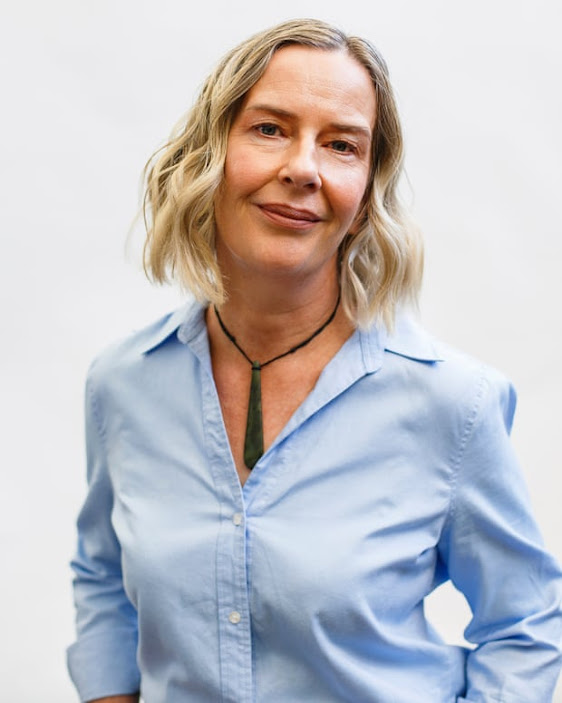 |
| Michelle Tom wrote Ten Thousand Aftershocks following a series of losses. Photograph: Karin Locke |
I’ve lost my family, my house, my country. I know we can live beyond grief
The Christchurch earthquake was just one of the tragedies Michelle Tom survived. From adversity, she says, we can all learn to harness fear, resist panic, and practise trust
Sun 5 Sep 2021 18.30 BST
In his 1961 book A Grief Observed, about the loss of his wife, CS Lewis said that no one had ever told him grief felt so much like fear. It was an astute observation that feels more relevant than ever. With millions of us forced to stay indoors in the pandemic, we grieve the dead as well as our lives as they were, and we are fearful for the future as we attempt to imagine it. Add to the pandemic recent IPCC warnings about worsening climate change, and it is no surprise anxious distress has become the default for many.
The uncertainty and sadness of the last 18 months are familiar to me, griefs I add to a life’s accumulation. At the ages of 21, 32 and 45 respectively I lost my father, my brother and my sister. Between losing my brother and my sister, I lost my house: in the 22 February, 2011 6.3 magnitude earthquake in Christchurch, Aotearoa/New Zealand.
When an accumulation of damage brought both me and the house to our knees, I moved to Australia. Leaving my country became just another loss to chalk up. Then, emboldened by my survival of the quakes, I reassessed my often turbulent relationship with my mother – and after deciding to become estranged from her, I navigated the complicated landscape that is grief for the living.
Even when I wasn’t mourning, I suffered from debilitating anxiety, an affliction I suffered since I was a child; panic attacks that are small deaths in themselves. After the quakes I experienced PTSD, complete with flashbacks and nightmares, but I have learned to accommodate fear. As writer Elizabeth Gilbert suggests in her book Big Magic, I let it sit in the backseat, but I don’t allow it to drive.
Grief and fear have been wise if indifferent teachers but I have, by way of my continued existence, learned to trust my ability to endure. I know now that I am capable of withstanding enormous emotional pain. This is not to boast; surviving was not pretty or clean, and I can think of no situation where it is, including our current pandemic/climate predicament. In Christchurch, there were times when I thought I might not make it, times I wondered how I might see out the day.
As one who has been to her own brink, I can report that it was other people who dragged me back to safe ground, who demonstrated their compassion, their silent solidarity, their exceptional humanity. So as I trust myself, I also trust humanity. Even those I don’t agree with, and who frustrate me. Even them. I have faith in us all, because I believe we are all fearful and we are all grieving, even when we don’t realise it.
During the aftershock phase in Christchurch I began to perceive when quakes were coming. A second or two before a tremor struck I sensed a slight shift in the air, the P wave, a precursor to the S wave, the one that rattles. What you live is what you learn, and survival is the human imperative. We adapt. I can’t tell you how much fear gave rise to that skill, but it involved becoming intimately acquainted with the underside of my dining table. The thing is, I endured, long after I thought I was at the end of my coping, and ever since I have nurtured trust in my capacity for perseverance, my ability to habituate. I believe most of us can, and will.
The irony is not lost on me that while the quakes stole my confidence in a house to protect me, in the pandemic my house is a fortification, my best and only refuge from the virus. I note other comparisons between the experience of two very different natural disasters. Both have resulted in grief for those taken so indiscriminately and both are unknown quantities; pernicious forces of nature that feel beyond our sense of control. As I did in Christchurch, I ask myself if we will ever reach the exalted state of “normal” again, and as it was with magnitudes, I never know how high the next day’s number will be.
But with the experience of the quakes so fresh, I call on what I have learned to outlast this latest threat. The legacy of adversity is perspective, and I employ it to view the pandemic in the wider landscape of a life. I harness fear, resist panic, and practise trust. Perhaps, in time, this might be the legacy to all who survive.
As Lewis said, grief feels like fear, but fear is the ultimate driver of survival, and as it turns out, I am grateful for the lessons of both.
Ten Thousand Aftershocks by Michelle Tom is out now through HarperCollins


No comments:
Post a Comment